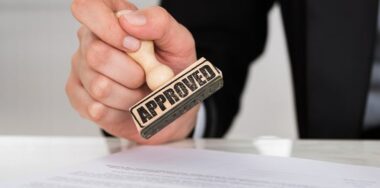Binance has parted ways with the CEO and one-third of the staff at its U.S.-facing digital asset exchange while continuing to fight U.S. regulators’ attempts to depose said CEO regarding widely reported illegal activity.
On Tuesday, Binance.US announced the resignation of CEO Brian Shroder along with the dismissal of 100 Binance.US staff members, equal to around one-third of the exchange’s total headcount. The exchange offered no specifics on Shroder’s exit, saying only that the cuts will give Binance.US “more than seven years of financial runway and enable us to continue to serve our customers while we operate as a crypto-only exchange.”
Shroder’s role will be filled on an interim basis by Binance.US chief legal officer Norman Reed, who joined the exchange in those high-flying ‘crypto’ days of December 2021. Shroder, who hasn’t tweeted since January and still hasn’t changed his account bio to remove the ‘President & CEO’ language, has yet to publicly comment on the news.
Binance has been cutting staff on a global basis, with some reports suggesting as many as 3,000 positions might ultimately be trimmed before the year is through. Binance founder Changpeng ‘CZ’ Zhao also made no comment on Tuesday’s announcement but dismissed the significance of “employee turnover” in a tweet last week.
$5B in valuation wiped out without a trial or court decision. Regardless of whether you hate CZ, the fact a multi-billion dollar company was able to be wiped out simply by a PR campaign and court filing is terrifying.
I have a feeling there will be an OIG investigation…
— Patrick Hillmann (@PRHillmann) September 13, 2023
Shroder’s departure adds to a growing list of senior executive departures as authorities across the globe increase their scrutiny of Binance’s operations. Former Binance PR director Patrick Hillmann, who abandoned ship in July, tweeted Tuesday that “the fact that a multi-billion dollar company was able to be wiped out by a PR campaign and court filing is terrifying.”
The ‘PR campaign” to which Hillmann referred would be the U.S. Securities and Exchange Commission (SEC) civil suit that was filed in June against Binance/CZ for “calculated evasion” of U.S. securities law. The SEC action, along with a similar suit filed in March by the U.S. Commodity Futures Trading Commission (CFTC), laid out a pattern of criminal activity that resulted in U.S banks cutting ties with Binance.US, prompting its transition to the ‘crypto-only exchange’ described above.
Tuesday’s announcement by Binance.US slammed the SEC, saying its “aggressive attempts to cripple our industry and the resulting impacts on our business have real-world consequences for American jobs and innovation, and this is an unfortunate example of that.” Binance.US’s 24-hour trading volume slumped below $9 million on Wednesday, down from around $300 million when the year began.
Shroder assumed the CEO position in October 2021 following the abrupt departure of Brian Brooks, who quit after only four months once he realized (as did his predecessor Catherine Coley) that his job was to serve as a compliance beard for the Binance.com mothership and CZ’s lawbreaking ways.
Both Brooks and Coley have already been deposed by the SEC as part of its civil suit. The SEC has been trying to depose Shroder for some time now, but Binance has been fighting tooth and nail to prevent that from happening.
He’s only the CEO… what could he know?
On the same day that Shroder’s departure was announced, Binance submitted a new filing to the U.S. District Court for the District of Columbia, which is handling the SEC civil suit. The partially redacted filing is in response to the SEC’s ongoing efforts to compel Binance to produce a variety of requested documents and to permit SEC attorneys to depose six Binance execs. Among the sought-after execs are Shroder and Jasmine Lee, CFO of BAM Trading Services (parent company of Binance.US).
Clearly, CZ hasn’t been communicating that effectively with his attorneys, otherwise, their filing might not have made the argument that Shroder couldn’t be deposed because “the burden imposed by these depositions far outweighs their potential benefit.” While Shroder might find it personally burdensome, it’s not like talking to the SEC now will take him away from any pressing duties at his former place of employment.
The SEC maintains that Shroder and Lee “are the only signatories on some of the key [Binance.US] customer fiat accounts” and thus possess “extensive firsthand and unique knowledge on the issue of BAM’s control and handling of Customer Assets.”
In February, internal Binance communications showed ex-CEO Coley was confused by the fact that individuals not working for Binance.US appeared to have greater control over the U.S. exchange’s bank accounts than herself. The cash in these accounts, most of it belonging to Binance.US customers, was routinely funneled out of the country to entities under CZ’s control.
Reuters previously reported that Shroder had pressed Binance.US compliance teams to lighten up regarding ‘know your customer’ requirements when onboarding new customers. While Binance was already notorious for treating KYC and anti-money laundering checks as optional, Shroder’s pressure tactics reportedly led to half his compliance team quitting just six months into his tenure.
Binance’s new filing argues that the SEC has failed to demonstrate that Shroder and Lee “have unique knowledge of the relevant issues.” Binance further argues that the SEC hasn’t provided evidence that Shroder and Lee “are involved in the day-to-day management details concerning the custody and transfer of customer assets or that they have any unique knowledge concerning those issues.”
Binance went on to claim that Shroder and Lee “have no unique knowledge regarding facts relevant to the limited topics identified in the Consent Order’s expedited discovery provision.” It’s almost as if Binance is confirming that the pair are—like Brooks and Coley—mere figureheads with no tangible input into how Binance.US is run.
However, Binance is willing to allow depositions by a handful of other BAM execs, including chief information security officer Erik Kellogg, senior treasury director Sara Sisenwein, and asset clearance team leader Tao Zhang. These execs can reportedly “provide the same information, with greater detail and familiarity.” But don’t dare talk to Shroder and Lee because they either know nothing or—more likely—a lot more than Binance would prefer to share with securities regulators.
Bam Trading (Binance’s U.S. Affiliate) Seeks To Block the U.S. SEC From Deposing its CEO and CFO (Oh, and that CEO Just "Resigned" Amid the Birth of 100 Potential Binance Whistleblowers)
Binance just filed for a protective court order against the U.S. SEC, seeking to limit the… pic.twitter.com/vMxXXSrnQx
— John Reed Stark (@JohnReedStark) September 13, 2023
Former SEC enforcement director John Reed Stark says the likelihood of Binance convincing the court to give Shroder and Lee a pass is extremely slim. Stark couldn’t recall a court denying the SEC’s request to depose a senior exec of a company “suspected of violating, or alleged to have violated, the anti-fraud provisions of the U.S. federal securities laws.”
In other legal developments, Monday saw both parties in this case file a joint motion for a protective order concerning confidential information. The parties have asked the court to limit to what extent certain sensitive information will be disclosed during the course of this litigation.
This appears to be a separate issue from the protective order the SEC sought on August 28, which was accompanied by over 30 supporting exhibits. The prevailing theory at the time was that these exhibits contained information supplied by the U.S. Department of Justice (DOJ), which is believed to be preparing criminal charges against Binance for money laundering and helping others to violate economic sanctions imposed by the U.S. Treasury Department’s Office of Foreign Assets Control.
A hearing has been set for September 18, during which Magistrate Judge Zia M. Faruqui will consider the various motions.
Relief efforts
In desperate need of a change of narrative, Binance announced it would donate “up to $3 million” worth of its in-house BNB token to Binance customers impacted by last week’s devastating earthquake in Morocco. Customers living in the most impacted areas were eligible to receive $100 worth of BNB apiece, while other Moroccan customers would be sent $10 in BNB.
Binance followed this move by offering up to $500,000 in BNB to customers impacted by the recent floods in Libya. In both cases, customers were required to complete ‘proof of address’ documentation, which is a bit rich given that Binance typically doesn’t give a monkey’s about customer details when they open accounts.
You’d hope that Binance would, for once, be telling the truth about its charitable activities and not gaslighting locals for positive media exposure, as was the case in Malta a few years ago. In 2018, Binance made all sorts of noise about wanting to put down roots in Malta, going as far as to make €7 million ($7.5 million) in financial commitments to a local charity benefiting cancer patients. In the end, that cash, along with Binance’s loudly proclaimed pursuit of a Malta operating license, proved so much vaporware.
There’s also the problem that, since merchants in the disaster zones won’t accept BNB as payment, Binance customers will first have to find someone willing to trade them fiat cash for their BNB (and then find a payment processor still willing to process a fiat withdrawal from Binance). And they better move quickly because BNB’s fiat price continues to tick downward with each negative Binance headline. And that’s before those long-awaited criminal charges are revealed.
CZ does a number two
Speaking of BNB, Binance just announced the launch of opBNB Mainnet, an Ethereum-compatible layer-2 of Binance’s in-house BNB chain. The new sub-chain started its Testnet phase in June and is now reportedly ready for prime time.
Much like Base, the recently launched Ethereum layer-2 of the Coinbase (NASDAQ: COIN) exchange, opBNB currently has only one ‘sequencer’ in charge of validating transactions. But never fear, just as Coinbase has vowed to ‘decentralize’ Base “over the years ahead,” Binance insists that it is “actively developing a decentralized sequencer mechanism” for opBNB. As such, “concerns about potential censorship can be mitigated.” (Feel better?)
Before Base was even officially underway, scammers had already laid their traps and were rugging users with abandon. Given that Binance has historically shown even less interest in reining in ‘crypto’ criminals than Coinbase, scammers must be openly salivating at the opportunities that opBNB has to offer. That likely includes CZ and his buddy Justin Sun, who will undoubtedly flood opBNB with ‘staked’ versions of their various unbacked stablecoins.
To polish this and other Binance turds, the company announced Wednesday that it had promoted VP of global marketing Rachel Conlan to chief marketing officer. After utterly ignoring Shroder’s ouster, CZ celebrated Conlan’s promotion, saying he had “high expectations” for her going forward.
CZ added that Conlan had been “driving many of our marketing initiatives for some time already,” including convincing Cristiano Ronaldo that shilling for Binance won’t prove a complete stain on his football legacy when the whip comes down. Can’t wait to see what Binance’s marketing mavens have in mind next. Just a suggestion, but we hear Tom Brady’s available…
Follow CoinGeek’s Crypto Crime Cartel series, which delves into the stream of group—from BitMEX to Binance, Bitcoin.com, Blockstream, ShapeShift, Coinbase, Ripple,
Ethereum, FTX and Tether—who have co-opted the digital asset revolution and turned the industry into a minefield for naïve (and even experienced) players in the market.
New to blockchain? Check out CoinGeek’s Blockchain for Beginners section, the ultimate resource guide to learn more about blockchain technology.








